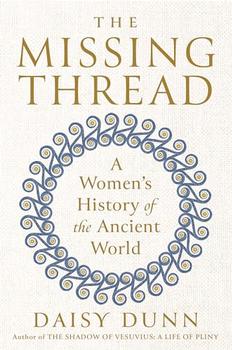Summary | Excerpt | Reading Guide | Reviews | Readalikes | Genres & Themes | Author Bio

The Bridge
Ten days after the war ended, my sister Laura drove a car off a bridge. The bridge was being repaired: she went right through the Danger sign. The car fell a hundred feet into the ravine, smashing through the treetops feathery with new leaves, then burst into flames and rolled down into the shallow creek at the bottom. Chunks of the bridge fell on top of it. Nothing much was left of her but charred smithereens.
I was informed of the accident by a policeman: the car was mine, and they'd traced the license. His tone was respectful: no doubt he recognized Richard's name. He said the tires may have caught on a streetcar track or the brakes may have failed, but he also felt bound to inform me that two witnesses - a retired lawyer and a bank teller, dependable people - had claimed to have seen the whole thing. They'd said Laura had turned the car sharply and deliberately, and had plunged off the bridge with no more fuss than stepping off a curb. They'd noticed her hands on the wheel because of the white gloves she'd been wearing.
It wasn't the brakes, I thought. She had her reasons. Not that they were ever the same as anybody else's reasons. She was completely ruthless in that way.
"I suppose you want someone to identify her," I said. "I'll come down as soon as I can." I could hear the calmness of my own voice, as if from a distance. In reality I could barely get the words out; my mouth was numb, my entire face was rigid with pain. I felt as if I'd been to the dentist. I was furious with Laura for what she'd done, but also with the policeman for implying that she'd done it. A hot wind was blowing around my head, the strands of my hair lifting and swirling in it, like ink spilled in water.
"I'm afraid there will be an inquest, Mrs. Griffen," he said.
"Naturally," I said. "But it was an accident. My sister was never a good driver."
I could picture the smooth oval of Laura's face, her neatly pinned chignon, the dress she would have been wearing: a shirtwaist with a small rounded collar, in a sober colour - navy blue or steel grey or hospital-corridor green. Penitential colours - less like something she'd chosen to put on than like something she'd been locked up in. Her solemn half-smile; the amazed lift of her eyebrows, as if she were admiring the view.
The white gloves: a Pontius Pilate gesture. She was washing her hands of me. Of all of us. What had she been thinking of as the car sailed off the bridge, then hung suspended in the afternoon sunlight, glinting like a dragonfly for that one instant of held breath before the plummet? Of Alex, of Richard, of bad faith, of our father and his wreckage; of God, perhaps, and her fatal, triangular bargain. Or of the stack of cheap school exercise books that she must have hidden that very morning, in the bureau drawer where I kept my stockings, knowing I would be the one to read them.
When the policeman had gone I went upstairs to change. To visit the morgue I would need gloves, and a hat with a veil. Something to cover the eyes. There might be reporters. I would have to call a taxi. Also I ought to warn Richard, at his office: he would wish to have a statement of grief prepared. I went into my dressing room: I would need black, and a handkerchief.
I opened the drawer, I saw the notebooks. I undid the crisscross of kitchen string that tied them together. I noticed that my teeth were chattering, and that I was cold all over. I must be in shock, I decided.
What I remembered then was Reenie, from when we were little. It was Reenie who'd done the bandaging, of scrapes and cuts and minor injuries: Mother might be resting, or doing good deeds elsewhere, but Reenie was always there. She'd scoop us up and sit us on the white enamel kitchen table, alongside the pie dough she was rolling out or the chicken she was cutting up or the fish she was gutting, and give us a lump of brown sugar to get us to close our mouths. Tell me where it hurts, she'd say. Stop howling. Just calm down and show me where.
Excerpted from The Blind Assassin by Margaret Atwood Copyright© 2000 by Margaret Atwood. Excerpted by permission of Nan A. Talese, a division of Random House, Inc. All rights reserved. No part of this excerpt may be reproduced or reprinted without permission in writing from the publisher.




Your guide toexceptional books
BookBrowse seeks out and recommends the best in contemporary fiction and nonfiction—books that not only engage and entertain but also deepen our understanding of ourselves and the world around us.